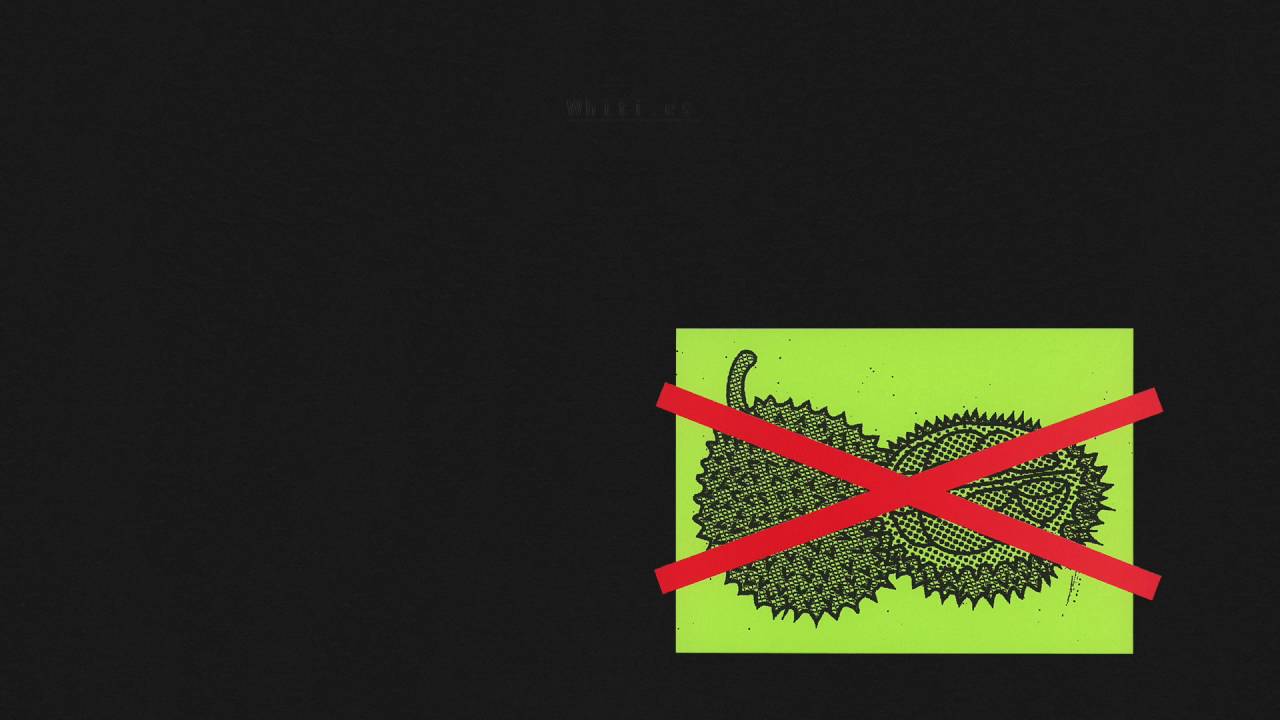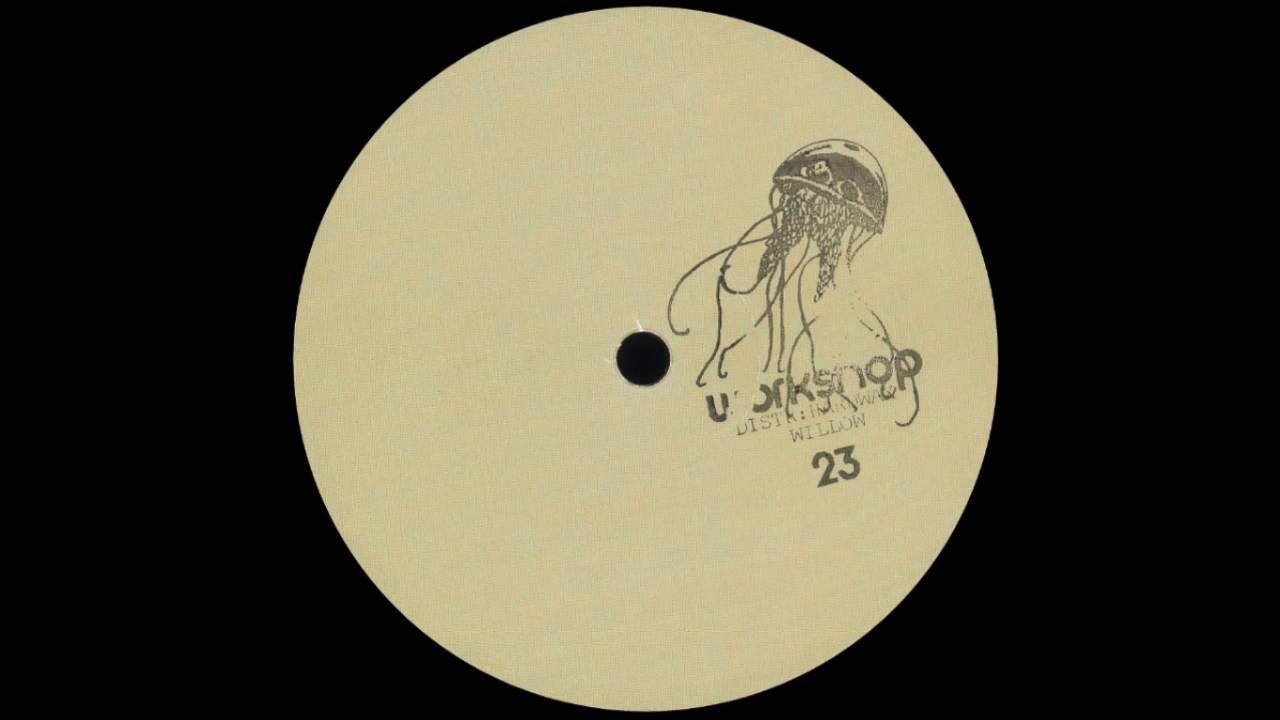So there goes another nail in the coffin of London’s club scene, and there I was thinking it was sealed enough already. The stripping on Tuesday night of fabric’s license wasn’t just another club gone though, it was of course the setting of a dangerous precedent for the future, one that any person whose Friday night doesn’t end at midnight in a Clapham wine bar should fear. On a personal level, finally getting to witness Ricardo Villalobos play room one in January felt like I was ticking off some kind of rite of passage as he meandered from his own ‘Hansup’ through to Josh Wink’s madcap ‘90s anthem ‘Higher State Of Consciousness’ in the way only he could – gloriously chaotic and raising the roof to a still very up-for-it 8 AM crowd. It’s a shame to think that others won’t have that experience now, not to mention a travesty that 250 people have lost their jobs at the whims of a calculated campaign by the local authority and police that seized at the opportunity to use the tragic deaths of two young men to do what they had wanted to do for a long time: close fabric. Above all else though, we must not forget the two deaths at the heart of this case. Nobody should never come home from a night out where they were simply seeking fun and new experiences.
There is so much to snigger about – that’s if you’re not already too depressed by it all – the police and local authority’s handling of the situation, and the case that they levelled against fabric. The club was of course described by police on multiple occasions in the past, and up until very recently, as a “beacon of best practice”, and yet now we find ourselves in the situation where their pioneering security operation and handling of drug use and dealing within the club, as well as their close co-operation with the police, has been used against them. The very number of drugs confiscated by security and handed over to the police is apparently proof, in the eyes of the Met, that fabric is a problem club – seemingly if we follow this logic to its natural end, fabric exists in a vacuum where only it faces an ongoing battle with keeping drugs out of clubs and all other clubs, as well as society, are of course entirely void of such issues. That, however, is where this decision sets a worrying precedent for what remains of London’s nighttime economy because it’s obviously simply untrue – with fabric successfully closed, it’s hard to envision a future where any of London’s nighttime venues can thrive.
What we are up against is a train of thought that seeks to send us hurtling back towards the beige conservatism of half a century ago or even three decades ago as Thatcher waged her war on acid house and the entire culture associated with it – just the suggestion at the license hearing on Tuesday that lower BPMs being played in the club could go some way to solving the issues fabric faces is worthy of parody. These decisions are being made by people who have absolutely no clue about the culture over which they seek to kill; fabric is merely surplus to requirements in a city that is continuously being sold off to whoever has the most money. We continue also to face an uphill battle against a train of thought on drugs that so spectacularly misses the point, it is actively putting more and more young people at even greater risk as MDMA dosages in pills continue to soar, often containing anything from 200-400mg. This nation’s policymakers care little for education and are only pushing Britain’s drug problems, greater than those of any other European nation, further out of their control.
The Met, putting its case against fabric on Tuesday, couldn’t even answer questions about pioneering drugs testing policies at festivals and other nightclubs such as those undertaken by Manchester’s Warehouse Project. Plainly, the Met does not even care enough about the safety of young clubbers to research methods like these ones which are working elsewhere, which, for example, caused a number of people at this summer’s Secret Garden Party Festival to dispose of their drugs after discovering that they were life-threatening or simply just duds. Drug testing programmes at festivals and some clubs are saving lives and allowing drugs charities such as <a href="http://wearetheloop.co.uk" target=“out">The Loop to circulate information on dangerous batches of drugs. Frankly, we live in a nation in which charities which receive little to no government funding are having to do the government’s job of minimising deaths from drug use for them. It’s so plainly obvious that closing clubs will not stop people from doing drugs and will rather lead further to their usage behind closed doors where even greater dangers lie and frequent abuse can become the norm with the occasional blow-out at regulated clubs where people will be far safer in the event of medical incidents being swapped for unregulated, underground parties where dealers are free to move from person to person.
So what happens next? If a club as pioneering in its security operation – fabric has always stood out as having the most intense of door searches as pages of Google reviews printed out by co-founder Cameron Leslie at the license hearing attest – cannot stand up to an ongoing assault on the city’s nightlife by the powers that be in the interests of property development and all-out gentrification, what hope do smaller venues have? What comes of Corsica Studios or Bussey Building or Oval Space or Bloc.? Furthermore, what right-minded person seeing all of this would want to invest their money into setting up new ventures that would enrich London’s nightlife scene as well as the city’s culture and economy if this is what is to come of their hard work? Naturally, our favourite clubs aren’t the only victims of widespread gentrification though. Sometimes I feel we all too easily get up in arms when this problem begins to affect the places we like to go to on Friday and Saturday nights, but too little attention is paid to the conscious social cleansing that precedes it and removes people from their bases and livelihoods as social housing is sold off to be replaced by luxury property. This has been the case recently at Elephant & Castle’s Heygate Estate, a sobering thought when they come for Corsica Studios what with those new apartments opposite looming over rather menacingly.
With fabric’s stature, past police praise and various initiatives (anti-harassment, theft and date rape drug awareness programmes among them) in place, it seemed invincible and as troubles swept across the city’s nightlife scene, it seemed like fabric would always be there standing strong. If they can’t weather that storm, who can?
Lanark Artefax – Glasz E.P
(UIQ)
In just five releases so far, Lee Gamble has set out on carving a distinct mission statement for his UIQ label, giving debuts to three new producers and mostly taking the backseat – just one release has come from the producer thus far. All releases on the label to date could be described as sitting at the cutting edge of experimental electronic music, pushing distinct sounds from the club and beyond into new realms with Cairo-based producer Zuli’s release particularly drawing on a wide range of elements and sounds for his Bionic Ahmed EP, pulling together grime sensibilities with the abstract, all punctuated by stark, weighty basslines.
For its latest release, UIQ gives Lanark Artefax his first release with the producer opting for the glitchier end of electronic music and often seemingly drawing on concepts such as musique concrète, particularly on closer ‘Virtual Bodies’ – think Holly Herndon played through a broken laptop. ‘Glasz’ is built around a beat reminiscent of hip-hop and, dare I say it, trap, ballroom-esque vocal samples pinging around the drums. Opener ‘All That Is Solid Melts Into Air’ calls to mind Autechre at their most banging and direct – stark, moody and yet simultaneously melodic. On Glasz E.P, Lee Gamble’s UIQ continues its ascent as one of the most exciting, forward-thinking labels in electronic music, and with his seeming commitment to unearthing new and unique talent, that should continue for some time to come.
Ploy – Iron Lungs
(Timedance)
Ploy wasn’t quite the brand new producer some thought he was when Hessle Audio introduced him to the world earlier this year with the Sala One Five release – it soon transpired that Ploy was in fact the new chosen moniker of producer Samuel who was following up releases via labels such as BRSTL and Mosca’s Not So Much. With the producer settling into a less generic name via the Hessle Audio release in February though, it seems this is what he’s sticking with as he moves to quickly follow it up providing Batu’s Timedance label with its sixth record, honing in further on a specific sound. Lead track ‘Iron Lungs’ brings to mind ‘Sala One Five’ from that aforementioned release earlier this year with its dusty, wheezing, metallic bass – the elements are pared down, occasional burst of sound rising to the fore and then back into insignificance. To call it a club tool would be to do it a disservice, but the restraint maintained throughout shows remarkable maturity preferring to strip proceedings back rather than throw too much at the wall, a move which works for the better.
‘Number 24’ finds the producer’s fascination with percussive patterns paying most dividens, brief flashes of incongruous melody offsetting the relatively jaunty drum loops steering the track. Closer ’Footprints In Solid Rock’, meanwhile, establishes more of a half-time percussive swagger, once again bearing in mind the notion that simplicity is key with the track’s opening three minutes devoted to the same, slowly developing loops of drums before eerie melodies enter the mix and carry the track’s second half through to the record’s end. Iron Lungs sees Ploy centre in further on the way he used drums as a track’s main focal point on ‘Move Yourself’, a cut from his Hessle EP earlier this year, with its excellent sampling of an old J Dilla beat. With more projects promised soon, hopefully this keen eye for restraint can continue.
Equiknoxx – Bird Sound Powder
(DDS)
Demdike Stare’s own DDS imprint has been a source of much excitement in recent years owing to its campaign of Shinichi Atobe releases, including a reissue last year of his much-loved Chain Reaction 12” Ship-Scope, alongside releases from Micachu, Shackleton, Robert Aiki Aubrey Lowe and the pair themselves. Now Demdike Stare introduce audiences to Equiknoxx, a little known collective of Jamaican dancehall and dub trailblazers who have been quietly doing their thing since 2008 via a sequence of releases on their own Equiknoxx Musiq label. Bird Sound Power is their debut album proper and takes in music recorded between 2009 and 2016, all collected together with the help of Demdike Stare and the excellent Jon K.
You might be wondering what a record that draws its main influences from Jamaican dancehall and dub tropes is doing in a column on electronic music, but, while firmly establishing themselves as part of the scene that emanates around the former genres, Equiknoxx’s work takes many of its cues from the club drawing on elements of juke and the kind of rib-rattling sub-bass that filled the best productions emerging from the UK over a decade ago, albeit with a dancehall sensibility. Faintly comedic bird samples tie it all together, eagle chirps filling the space between chopped-up vocals and slight air raid sirens on ‘Last Of The Mohicans’ and ‘A Rabbit Spoke To Me When I Woke Up’ amongst other cuts. ‘Clunk’ is punctuated by menacing strings and swaggering drums while ‘Peanut Porridge’ strips back proceedings with its stilted beats chugging along with rarely more than one extra element competing with them for attention.
Bird Sound Power is a record that, on the whole, allows the producers behind the dancehall scene to have their time in the sun, though occasional rushes of energy come in the form of tracks such as ‘Someone Flagged It Up!!’ which switches its focus throughout its three-and-a-half-minute runtime, clanking drums joining the melee here and there alongside all manner of bleeps and bloops. ‘Congo Get Slap Like A Congo Get Slap’ is infectiously fun, opening on a somersault of strings and taking in sweeping, dramatic pads and sugar-coated, squeaky vocals. On the whole, it’s a record that doesn’t take itself overtly seriously or try to throw too much at its listener and the results are exceptional.
Karen Gwyer – Prophase Metaphase Anaphase Telophase
(Don’t Be Afraid)
With her first contribution to Semtek’s Don’t Be Afraid label having arrived in the form of the playful, skittish ‘Mom Did It On The Plane’ just months ago on a various artists 12”, Karen Gwyer returns to the label for her full debut with Prophase Metaphase Anaphase Telophase. Gwyer was last found in this column contributing to a split record on Alien Jams with Beatrice Dillon, her ‘Common Soundproofing Myths’ sprawling out across almost 14 minutes and building ever so gradually across that time. This latest record’s title track sees her again use time to develop ideas carefully, a thin kick drum providing the back-bone to much of its nine minutes and other little percussive elements joining the mix as it builds further. What’s crucial to the track’s success is just how freeform Gwyer’s synth play comes across atop those drums, building the kind of sense of euphoria that doesn’t slap you in the face and demand that you feel a certain way but instead eases ever so subtly into your psyche. By the end, you feel like it could go on for many minutes more.
B-side opener, ‘And Again Those Eyes’, is a far starker offering, switching the formula entirely as Gwyer seemingly improvises cosmic electronics for little over a minute – again, you perhaps want more, but you’re left to fill the gaps and draw on your own imagination to predict what more could have come. Closer ‘Meiosis Gametes’ is a sludgy beast, chugging drums marching forth, growing ever more oppressive, and showing no let-up for much of its nine minutes, with the gnarly industrialism offset by the same repeating kaleidoscopic synth progression. There’s a looseness in Karen Gwyer’s work that continues to make her such an enthralling producer and with Prophase Metaphase Anaphase Telophase, she’s comprised some of her finest, unbridled work to date to add to what has already been an impressive year for both herself and DBA. Expect more outstanding music to come from the label before the year is out too with a new record from Berlin-based rRoxymore promised on the horizon.
Minor Science – Whities 008
(Whities)
Whities releases are becoming something of a fixture in this column, particularly with the release earlier this year of Avalon Emerson’s first contribution to the label, a 12” which is still unfurling its magic and confirming its year-end best status six months on. The latest release from Whities though sees a past contributor return to the fold with Minor Science following on from 2015’s ‘Glamour’ and ‘Closing Acts’, released on the label, as well as a record with Will Bankhead’s The Trilogy Tapes in 2014, and offering up two new cuts that see him continue to progress the project. Last year’s Whities release saw Berlin-based Angus Finlayson unleash something markedly darker than his TTT debut, exploring elements of electro and techno with distinctly UK-driven sensibilities, and his third effort pushes that idea further and more patently than ever before, particularly on lead cut ‘Naturally Spineless’.
Certain hangovers of Finlayson’s past work can be heard immediately in vocal samples not too dissimilar to those featured in ‘Glamour’ featuring amongst the undulating bass of the track’s expansive intro, before something far more askew than could be found even on his last record soon takes hold, rafts of low-end bass pulsating across almost 2-step garage rhythms, mixing up all the best elements of dubstep and dark garage from the early half of the last decade in a way that is wholly new – sure, fans of those sounds will love this, but a mere nostalgia-ridden callback it certainly isn’t. On the flipside, ‘Underripe’ is comparatively light and airy, wonky bleeps that again hark back to ‘Glamour’ ricocheting across the thud of drums calling to mind some of the finest of Detroit electro, though underpinned once again by that most UK of sub-bass. There’s still menace in the descending chord sequence too, but it’s far sparser than the previous track.
While Whities 008 goes some way to confirming already that Finlayson has carved out a sound that can listeners can instantly recognise as his own, certain flourishes across both tracks call to mind some of the best early work of Objekt, not least his release with Hessle Audio in the form of 2012’s Cactus / Porcupine, in the way that the pair both appear to approach what has collectively come to be swept up as a lineage of “UK bass music”, but with a fascination with electro and aspects of techno at the heart of it all. With Objekt objectively (sorry) standing as one of the best UK-born electronic music producers of our time, it’s perhaps not too shabby a comparison to face just three releases in.
Convextion – 2845
(a.r.t.less)
Just the second album from Convextion and only the second release under the alias of Gerard Hanson in nine years – the first came in the form of a beatless two-tracker surprise-released earlier this year by Acido – 2845 certainly carries a lot of expectations, particularly coming off the back of what is already a spotless, relatively sparse back-catalogue from the producer. It’s a record that retains much of the core of what so many have fallen in love with in his near-20-year run of releasing records under the alias. Where the aforementioned release earlier this year on Acido saw Hanson strip his work back to its core – that is shining the spotlight on the gorgeous, rich melodies that have permeated much of his work in the past – 2845 brings back those dubbed-out, rolling beats that sit alongside his synth work so well, shooting for the deepest, most ruminating moments on the dance floor.
Opener ‘New Horizon’ is a 16-minute slow burner, the most Hanson-esque of synth pads swelling and looping alone in its opening four minutes before giving way to the most hypnotic and gentle of kick drums for much of the remainder of its runtime. The rest of the album’s tracks sit at around half the length of ‘New Horizon’, but still that same attention to detail and eye for subtle development remains. The bassline on ‘Distant Transmission’ gurgles and loops, compelling in its repetition. ‘Saline Moon’ calls to mind some of the best ‘90s Detroit electro and techno, less contemplative than anything else that appears on the record. What’s so remarkable about 2845 is just how carefully considered every element seems to be and yet how unfussy the end result is – a record that is sure to earn the same mythical status that Hanson’s debut Convextion album did ten years ago.
Willow – Workshop 23
(Workshop)
First appearing via a various artists compilation released on the Berlin-based Workshop label early last year, the story goes that Willow was discovered at Gottwood Festival in 2013 by Move D after he stumbled across her playing ‘Feel Me’ from her phone late one night in her tent. Taken by the track, the DJ and producer featured in his mix compilation for Fabric before passing it on to Lowtec and Even Tuell with the view to releasing the track on their label. Now, 18 months on from the release of ‘Feel Me’, Willow is making her full 12” debut via the Workshop imprint.
The Manchester-based producer has begun stepping out more prominently this year, taking a number of club gigs around the UK and Europe as well as stepping up on NTS and other online platforms for a number of mixes – a significant difference to the relative anonymity that she had retained in the immediate aftermath of the release of ‘Feel Me’ last year. This latest 12” sees the producer make significant steps to establishing a sound that one can distinctly and immediately associate with her, her own cooed vocals once again forming a vital factor in the way that her music has the ability to get under your skin in the best way possible, particular on the A side’s two cuts. Willow’s music is minimalist in senses but led by an unbeatable groove, underpinned by rafts of thwacking bass, most successfully employed on the closing track on the B side of the 12”. An enchanting, descending chord sequence rolls out across ‘A1’, one of many charming hooks that Willow works into the record’s four tracks. If ‘Feel Me’ left you craving more from the producer, Workshop 23 will most definitely leave you satisfied.
Scheich In China – Scheich In China
(V I S)
While Hamburg’s much-loved Golden Püdel club is still some way from restarting operations following a fire earlier this year – as well as a legal battle between the building’s owners which was later resolved in the club’s favour – many of the key figures and residents that make up the scene of which the Püdel is the centre have continued to push boundaries in its absence. Among those residents are Nina Trifft – or, more simply, Nina – and Tobias Duffner who last year founded the V I S label as a means of sharing work from the darkest, most experimental recesses of the local scene. Stepping up to the mantle for the label’s second release is Scheich In China, the project of one Philipp Meiers, formerly part of On-Brr. Where On-Brr was often a vehicle for playful and abstract synth-pop, Meiers’ solo work has seen him shed those vaguely pop sensibilities for abstract, doom-ridden drone pieces as is the case on this latest self-titled work for V I S.
On the record’s A side sit three repetitive tracks, unwavering in their ability to instill suspense, all of them chugging along, providing a neat soundtrack to the most angst-ridden of moods. ‘A3’ is perhaps the lightest of the tracks on offer, static hissing and burbling over the kind of hypnotic, irregular percussive loop that demands toe-tapping at the very least. The entirety of the B side is given over to one single 19-minute piece, comprised of various field recordings – disembodied, distant vocals appearing only very occasionally, and different elements weaving in and out throughout its runtime, switching up the tone with one single change at a time. One could accuse both the track and the whole record of being relentless forceful in just how bleak it is, but if you’re prepared to be sucked in, the results are indisputably captivating, Meiers experimenting to his full potential meeting drones in the middle with techno.






